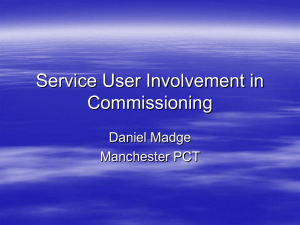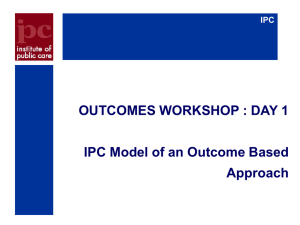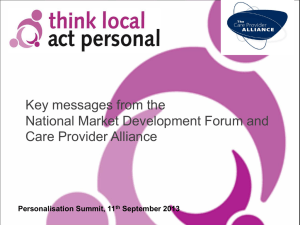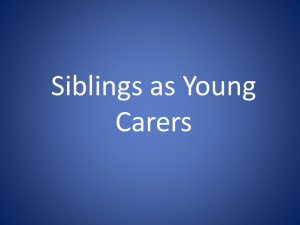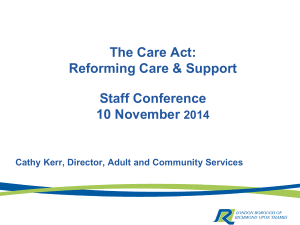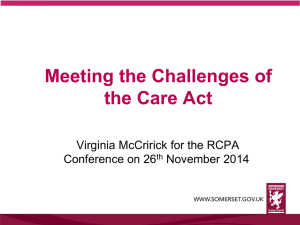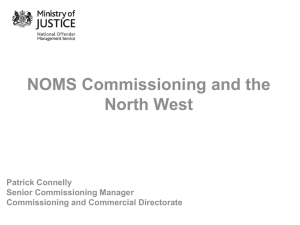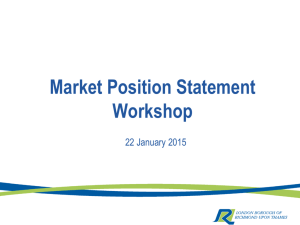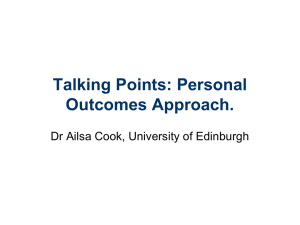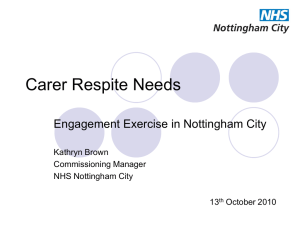Sarah Sansoa/Rosemary Leek
advertisement
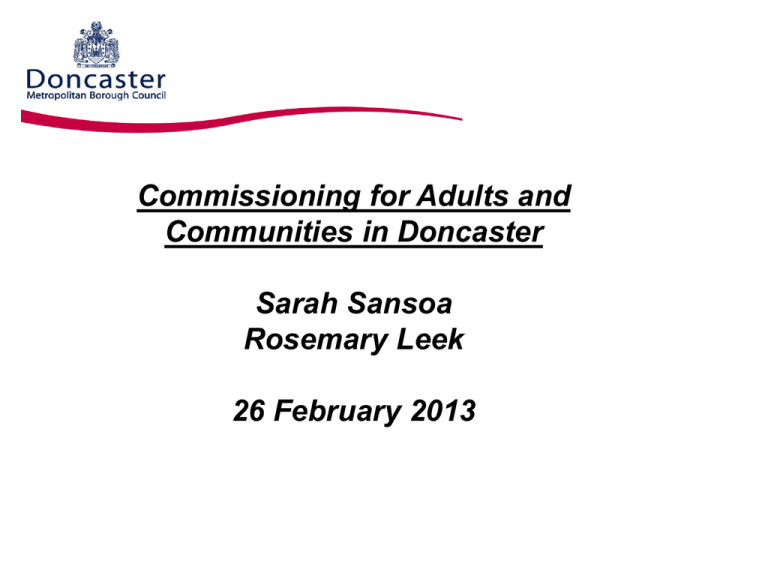
Commissioning for Adults and Communities in Doncaster Sarah Sansoa Rosemary Leek 26 February 2013 Current position • Use of resources • Adult Social Care Commissioning Strategy for Doncaster Being Person-centred Outcome focused Openness Equity of services Value for money Providing and supporting the local economy Partnership working Evidence based Develop commissioning competencies Who is the Commissioning Strategy for? • • • • • • • Citizens of Doncaster Elected Members Council staff Strategic Partners Voluntary and Community organisations Businesses Social enterprises Doncaster Adults Commissioning Strategy – Building the Road People, their families and carers Commissioning Providers What do we want to achieve? I am in control, I have choice, and I am involved and listened to I am happy and independent My carers and I get the right support, when and how we need it - not just a service What do we want to achieve? People’s experiences and opinions determine the services we commission We will develop shared plans and priorities with partners We will invest in high quality, safe services to deliver individual outcomes The team are skilled, knowledgeable, qualified and feel supported to deliver personalised services What do we want to achieve? Our staff tell us that they feel valued, are well trained, and enjoy working for us We know and act on what’s working and what’s not working for people, families and carers We provide flexible, dynamic, safe and responsive services How will it be done? I will choose who supports them My reviews will take place annually and be person centred Processes will be simple and easy to understand I will have a network of information, advice and support Information collected on complaints and compliments is learned from and used to improve services I am supported to have my voice heard How will we know we have achieved it? The number of person centred reviews undertaken The number of people who say they are ‘in control’ of their personal budgets The number and type of compliments and complaints The number of people in crisis More people, families and carers involved in decision making How will it be done? We talk and listen to people, their families and carers to understand what services they need by using the Working Together for Change process We set a base line for person-centred services by using Progress for Providers We will involve people, their families and carers in monitoring the quality of services We will develop outcome based service specifications How will we know we have achieved it? Completed number of baseline selfassessments The number of people with a ‘real’ personal budget will be increased and POET will be used to evaluate this There will be a reduction in the numbers of admissions to residential care We will have a commissioning strategy and service plan which sets out our targets How will it be done? Our staff will receive training to deliver person centred reviews and practices We will self-assess using the Progress for Providers toolkits How will we know we have achieved it? We have stories and experiences from people, their families and carers Improvement in Progress for Providers self-assessment scores The number of services that are developed with people, their families and carers will be increased The number of people receiving a service will be increased Next steps: Consultation Thank you Rosemary.leek@doncaster.gov.uk Sarah.sansoa@doncaster.gov.uk
